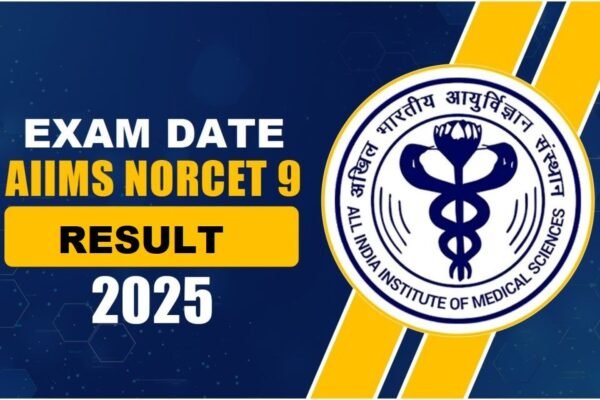US General Praises Pakistan as Key Ally in Anti-Terror Mission
US General Calls Pakistan a “Phenomenal Ally” in Fight Against Terrorism
US General Calls Pakistan a “Phenomenal Ally” in Fight Against Terrorism
In a recent statement that’s sparking fresh conversations, a top-ranking US general described Pakistan as a “phenomenal partner” in America’s fight against terrorism. This may come as a surprise to many, given the often rocky history between the two countries. But it also sheds light on a side of the US-Pakistan relationship that doesn’t get much attention—especially when it comes to counterterrorism efforts.
So what’s really going on here? Why is Pakistan getting such praise from a high-level U.S. military leader, and what does that mean for global security? Let’s break it down in simple terms.
Praise from a Powerful Voice
The praise came from General Michael Erik Kurilla, who leads the US Central Command (CENTCOM). For those unfamiliar, CENTCOM is responsible for US military operations across several regions, including the Middle East and parts of Central and South Asia—areas often troubled by terror-related threats.
Speaking at a congressional hearing in front of the US Senate Armed Services Committee, General Kurilla emphasized that Pakistan plays a crucial role in the joint effort of fighting terrorism. According to him, Pakistan offers valuable intelligence and access that helps the US track and disrupt potential threats before they reach American soil or harm its allies.
Why Is This Important?
This kind of acknowledgement is rare in today’s global political climate. Tensions between the US and Pakistan—especially concerning security and terrorism—have often been strained. But Kurilla’s comments tell a different story. He painted Pakistan as a key player in counterterrorism, particularly in areas close to Afghanistan.
Pakistan’s Role in the Region
Pakistan shares a long and porous border with Afghanistan. This geographic proximity gives Pakistan a significant influence over what happens inside Afghanistan—especially when it comes to tracking terrorists. Over the years, Pakistan has conducted anti-terror operations near its borders and shared intelligence with global partners, including the United States.
According to Kurilla, the US has used Pakistani airspace to carry out surveillance and intelligence missions in Afghanistan since American troops left the region in 2021. Because the US no longer has a physical presence in Afghanistan, it relies on nearby countries like Pakistan to maintain its overwatch capabilities.
Here’s What Makes Pakistan So Valuable:
- Strategic Location: Its borders with Afghanistan and Iran make it a crucial region for monitoring terrorism networks.
- Intelligence Cooperation: Pakistan provides vital data that helps identify and neutralize threats.
- Operational Support: Access to airspace and logistical help enables more efficient US surveillance in the region.
What About the Taliban and Afghanistan?
Afghanistan remains a challenge when it comes to global terrorism, especially with extremist groups like ISIS-K and Al-Qaeda still operational in the region. General Kurilla noted that the threat from ISIS-K—the Afghan offshoot of ISIS—is real and growing. He even mentioned that this group could potentially launch attacks outside Afghanistan in under six months.
Without boots on the ground, the US has to depend on its regional allies like Pakistan to keep a close eye on such threats. This makes Pakistan’s role even more essential today than it was in previous years.
Challenges in the Relationship
Now, it’s not all smooth sailing. The US and Pakistan have had their fair share of disagreements—especially over issues like drone strikes, harboring terrorist leaders, and differing political agendas in the region. But despite these frictions, General Kurilla’s remarks show that the two countries still manage to collaborate on high-stakes security matters.
Think of it like a complicated friendship. You might not always be on the same page, but when it really matters—like protecting innocent lives—teamwork takes the lead.
Zooming Out: Why Should You Care?
It’s easy to think global politics and military strategies don’t have much to do with our daily lives. But in a world as connected as ours, what happens across the globe can affect everyone. For instance, a terrorist group plotting an attack thousands of miles away could have ripple effects that eventually touch our communities—politically, economically, or even in terms of security policy.
When countries like the US and Pakistan work together, they not only prevent such threats from taking root but also promote a more stable global environment. That’s why counterterrorism partnerships matter.
Trust, Communication, and Shared Goals
Just like in any team effort, success in international anti-terrorism missions depends heavily on trust and clear communication. General Kurilla’s praise for Pakistan doesn’t just recognize past help—it also signals hope for continued cooperation. By publicly highlighting Pakistan’s role, the US could be encouraging more transparency and unity between the two governments.
Looking Ahead: What’s Next?
So what can we expect moving forward? Well, if cooperation continues, the US and Pakistan could strengthen their intelligence-sharing systems, improve joint response times, and even carry out more precise missions against known terror suspects. On the flip side, geopolitical tensions, changing leadership, or even public opinion could strain these efforts again.
Still, General Kurilla’s statement adds a positive twist to what’s typically thought of as a rocky relationship. It shows that progress is possible when priorities align—even across borders.
Final Thoughts: Allies in the Shadows
It’s easy to overlook the quiet partnerships happening behind closed doors—especially when they concern national security. But as General Kurilla’s words make clear, **Pakistan remains more than just a neighbor to dangerous territory; it’s an active player in keeping threats at bay.**
Yes, challenges remain. But with high-level acknowledgment from the US, perhaps it’s time to start seeing Pakistan not just as a sometimes-ally, but as a continuing partner in global peacekeeping.
What do you think? Can unpredictable partnerships like this one shape a safer world? Or are we destined to keep cycling between trust and tension? Let’s keep the conversation going.
Thanks for reading!
SEO Key Terms Used:
- US-Pakistan relations
- counterterrorism partnership
- General Kurilla Pakistan
- Pakistan anti-terrorism role
- ISIS-K threats
- Afghanistan surveillance
- US CENTCOM and Pakistan












